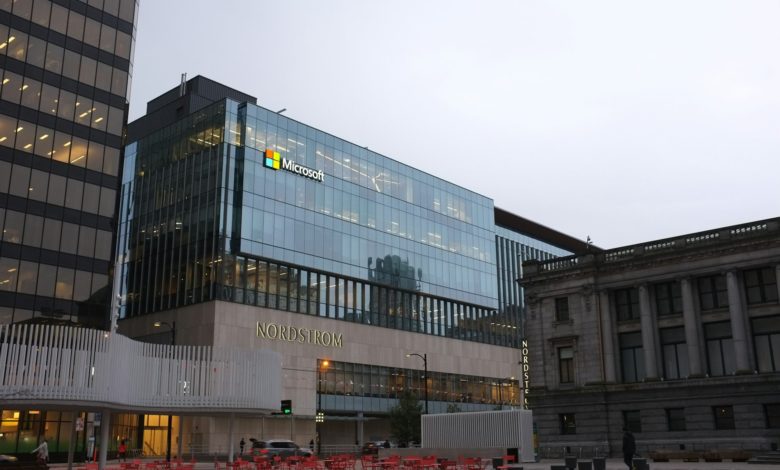
Microsoft has announced it is "slowing or pausing" several AI data center projects, including a highly anticipated $1 billion initiative in Ohio. The tech giant’s decision reflects a shift in the demand for artificial intelligence infrastructure, as the need for vast computing resources—previously driving massive expansions—may not be as high as initially expected.
AI Demand and Infrastructure Expansion
Microsoft had been aggressively scaling its infrastructure to meet the rising demand for cloud services and AI applications. The company’s cloud division, Azure, had experienced unprecedented growth, driven largely by the boom in AI, particularly in generative models like OpenAI’s ChatGPT. However, Microsoft’s recent announcement, which included halting early-stage projects in Ohio’s Licking County, suggests that the company may have overestimated the immediate need for such expansive infrastructure.
Noelle Walsh, President of Microsoft’s Cloud Operations, explained the company’s pivot in a LinkedIn post, acknowledging that demand for its cloud and AI services had grown faster than anticipated. She clarified that any major infrastructure projects would need refinement and agility, prompting the slowdown of several early-stage initiatives.
The Ohio Project and Local Impact
Among the most notable projects affected is Microsoft’s planned $1 billion data center project in Ohio. The company has decided to pause construction on rural land in Licking County, near Columbus. Two of the three sites earmarked for development will now be reserved for farmland, signaling a shift in Microsoft’s long-term plans for the area. The local community had been eagerly anticipating the economic benefits that would come with the massive investment, but the change in course has been disappointing to officials.
Despite the pause, Ohio remains a significant hub for tech infrastructure. Microsoft’s rivals, including Google and Meta Platforms, have also made significant investments in the state. Moreover, Intel’s highly anticipated semiconductor factory remains a key development in the region, although its completion has been delayed to 2030.
Shifting Priorities and the OpenAI Partnership
The decision to scale back some data center projects shows the evolving relationship between Microsoft and OpenAI, the AI startup behind the ChatGPT chatbot. In January, Microsoft and OpenAI altered their exclusive agreement, allowing OpenAI to build its own computing capacity. While Microsoft continues to provide infrastructure to OpenAI, the shift in priorities may explain why Microsoft has chosen to reassess the scope of its AI data center expansion.
Craig Ellis, an analyst at B. Riley Securities, noted that while OpenAI pushed forward with the development of increasingly powerful AI systems, Microsoft may not have aligned with this aggressive expansion, leading to a reevaluation of infrastructure investments.
Global Expansion Continues Despite Slowdown
Despite the pause in Ohio and other projects, Microsoft stated its commitment to AI infrastructure, with plans to invest over $80 billion globally in expanding its data center capabilities this fiscal year. The company has already doubled its data center capacity in the past three years, and it remains bullish on the long-term potential of AI and cloud services.
Walsh reassured investors and stakeholders that while the pace of investment may slow, Microsoft’s growth trajectory remains strong, with a focus on aligning investments with business priorities and customer demand. The company’s ability to pivot its plans in response to changing market dynamics demonstrates its agility and long-term vision.
Energy and Environmental Considerations
The massive infrastructure required to support AI technologies is energy-intensive, with data centers consuming significant amounts of electricity. Microsoft has explored sustainable energy solutions, including nuclear power, as part of its strategy to mitigate the environmental impact of its data centers. The company is backing the revival of the Three Mile Island nuclear plant in Pennsylvania, which would provide power to data centers across Ohio and Virginia, two of the largest data center hubs in the U.S.
At the same time, President Trump has invoked AI’s energy demands as part of his push to revitalize the U.S. coal industry, citing the need for reliable energy sources to power data centers. This controversial move reflects the broader debate over the environmental impact of the tech industry’s infrastructure needs.
Looking Ahead
Microsoft’s shift in AI data center strategy underscores the fluid nature of the tech industry. While the AI boom initially spurred rapid expansion, the evolving needs of customers and the changing landscape of AI development are forcing companies to recalibrate. As competition in the cloud and AI space intensifies, Microsoft’s ability to adapt to these shifts will be crucial for maintaining its position as a leader in the industry.
For now, the pause in Ohio may represent a moment of recalibration for Microsoft, but its long-term commitment to AI and cloud services remains steadfast. Investors and local communities will be watching closely as the company navigates these changes and looks for new ways to align its investments with emerging customer needs and technological advancements.




